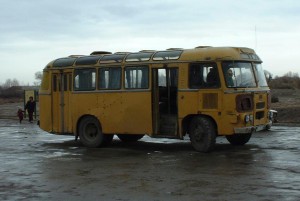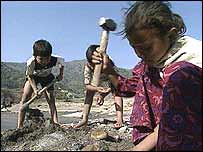
I have, once again, given up substantial amounts of control over my life.
Living overseas does that to you. Part of it is the expatriate experience. The language barrier makes it hard to know what’s going on much of the time, and the cultural gap means that even when you’ve got the language skills, you’re still missing most of the nuance of everything that’s happening around you. You don’t get to customize your environment like you would in your home country – you accept whatever flavor of juices is offered to you, and you let them paint the walls any color your landlord likes. Doing anything else is an exhausting and unpleasant way to spend your time. People who can’t give up control should stay home.
The loss of control runs deeper than being an outsider, though. The fact is that poor people have less control over their lives. This is the damage done by poverty. They cannot easily change jobs or locations, they are less resilient in the face of crisis, and they are at the mercy of often autocratic governments.
And when you go to live in a poor country, you accept those same limitations. You get special treatment for being an expat, yes, but there are limits to this. The police officer will do what he wants regardless of the facts of the situation. There is no treatment for HIV. The government just repossessed your house and now it will be torn down. Women can be beaten for undercooking dinner. That is how it is and your foreign passport can’t fix it.
It’s a fine line between realistically facing limitations, and accepting the very conditions that you are there to change. If you’re working for an anti-corruption project, you need to stay angry at cops who require bribes. If you’re trying to improve health, you need to identify the obstacles to HIV treatment (generally lack of funds and inability to write decent Global Fund grant, coupled with provider inexperience) and find a way around them.
If you push too hard and get too angry, you burn out, fast. It hurts you and it doesn’t do much for your projects. It could get you kicked out of the country. But if you are too laid back and do too little, you’re just a waste of funding that could be used for something that matters. You have to find that sweet spot, somewhere in between, where you don’t mind a late plane but you do mind physicians who must be bribed to provide care.
Finding that mental space is hard. Staying in it is harder. But it’s one of the many things you have to manage if you want to do things well.
______________
(photo credit: Ko:(char *)hook)
Chosen because it’s a nice harmless photo of a control room – searching Flickr for “control” brings you freaky, freaky things.






